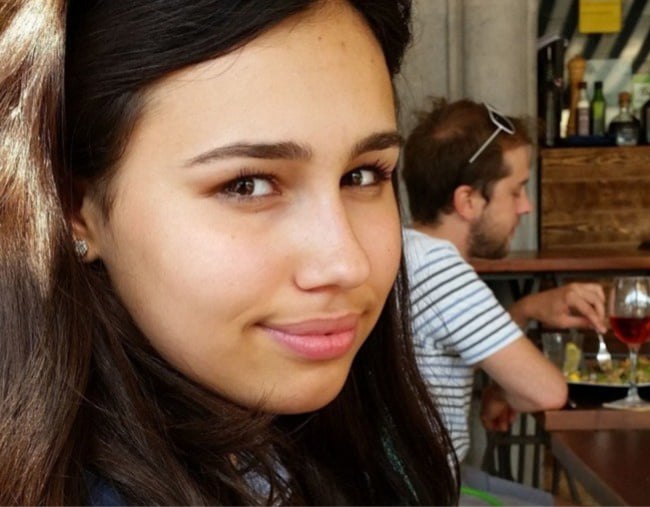
-With AAP
1. Natasha Ednan-Laperouse, 15, died after she bought a sandwich at the airport.
The father of a teenage girl who died from a severe allergic reaction on a British Airways flight has called the pain he and his family feels as “indescribable”.
Natasha Ednan-Laperouse, 15, collapsed on a July 17, 2016 flight from London to Nice after buying an artichoke, olive and tapenade baguette at Heathrow Airport.
Red welts began appearing on her skin during the flight and her father Nadim, a millionaire owner of Wow Toys from Fulham, administered the first of two EpiPens she carried.
She started the hyperventilate and cabin crew were made aware of the situation. She was given a second EpiPen, but continued to deteriorate.
Natasha was laid out on the floor of the plane to receive emergency treatment and a junior doctor on board administered a shot of adrenaline from an on-board first aid kit.
She lost consciousness and suffered a cardiac arrest.
French paramedics met the plane when it landed and rushed her Natasha to hospital, but she was pronounced dead later that day.
Nadim told The Sun he, his wife and son are still trying to adjust to life without Natasha.
“It’s a daily battle and the pain is indescribable.”
“Everything we say and do is a reminder that she isn’t with us, her empty bedroom, school uniform hanging in her wardrobe, her holiday bag packed for her holiday in Nice has never been unpacked. We can’t bear to.”

Top Comments
No such things as food allergies before mass vaccination. Just saying. Nobody cares because vaccines make loadsa money. If they kill a few people along the way, eh, just the cost of doing business.
My Michelle Guthrie conspiracy theory: she was an appointment recommended/promoted by Rupert Murdoch and/or the Institute of Public Affairs and her termination is fallout from the recent spill.
The ABC Chairman is good mates with Turnbull and Liberal moderates are looking for ways to punish their Right faction for destabilising the LNP's hold on government.
Perhaps, there has also been a post-spill crisis of conscience in the ranks of the LNP about the necessity of our independent public broadcaster and the wisdom of gutting it.
Or, the realisation that you can't buy Murdoch's loyalty and it is time to undo some of the favours done for him.
All guesswork, but it has to be said, Guthrie's termination is an intriguing event due to its abruptness and proximity to the LNP spill.